Many gifted adults crave immersion. You want to disappear into something meaningful, challenging, absorbing. You want flow.
But just as you settle in to fire up your mind, an emotion crashes in:
- Loneliness, and a craving for connection.
- Emotional baggage.
- Relationship stress.
- Sometimes it’s existential heaviness with no name at all.
This isn’t a personal flaw.
It’s a common paradox in gifted adulthood:
the intellect is hungry, but the emotions are loud.
This is just evidence of our asynchronous development—where cognitive maturity and emotional development evolve at different paces.
It’s like opening a Word document from that colleague who hasn’t updated Microsoft in at least 10 years.
So how do we navigate this?
We stop trying to “balance” it—and instead pursue integration.
I posted about this on Instagram today, you can find that here. It’s the bite-size version for the masses, here’s the more advanced version for you…
Move from Flow to Complexity Fit
I can tell you from experience that there are few things worse than finding yourself neck-deep in work that you’re really good at, but carries no emotional relevance for you. It’s a quick path to burn-out.
Instead of chasing “flow” (which often implies harmony), consider optimizing for “complexity fitness”—the ability of your cognitive and emotional operating systems to handle multidimensional demands with minimal internal friction. This means stop chasing “balance” – create integration. Balance is spending an hour on work and an hour on self-care. We aren’t wired this way. Integration is both intellectual and emotional coexisting.
Mihaly Csikszentmihalyi (yes, the flow guy) later admitted that gifted individuals are often too complex for sustained flow (you’ll get bored). The challenge is not focus—it’s internal contradiction.
For example:
- You crave complexity but can also get overwhelmed.
- You want deep focus and solitude but also crave emotional connection.
- You value freedom but demand perfection.
- You want to finish projects but feel bored halfway through.
- You want to be seen and understood but fear being too much or misunderstood.
So Try This Instead:
Optimize for dynamic tension—like tuning an instrument—rather than effortless harmony.
Design your work so that it is both intellectually challenging and emotionally relevant for you.
For example, you can coach or teach others using frameworks you’ve built for yourself. As a gifted adult you likely deal with perfectionism and imposter-syndome. Even those who don’t identify with giftedness will find value in what you have to share on those topics.
Intellectually, you’ll have to organize your thoughts and put into words what you are practicing.
Emotionally, you’re deepening your understanding of yourself and you’ll likely find it rewarding to help others.
Use Self-Complexity
I had a therapist once tell me that I was a master at compartmentalization. Then he spent about 15 years getting me to de-compartmentalize. I should have never listened to him – and he should get more educated on giftedness in adults.
Linville’s Self-Complexity Theory posits that individuals with more differentiated self-aspects (e.g., artist, leader, thinker, feeler, friend) are more resilient – because negative affect doesn’t spill over globally.
As gifted adults, we often over-identify with our intellect or performance roles (the job title, the responsibility we carry). When emotions disrupt one area (like work), it collapses the whole system.
Advanced Strategy:
Build compartments to hold different parts of you. Map the parts of your ‘self’ and assign unique domains of expression to each.
- Let your “intellectual self” write the book.
- Let your “relational self” lead community or coaching work.
- Let your “existential self” explore meaning through journaling or spiritual practices.
This distributes emotional load and prevents one domain from tanking the rest.
Practice Cognitive-Emotional Code Switching
Our brains have different “modes,” kind of like apps running in the background.
- One is for deep thinking
- One is for emotional processing
- One is for resting and daydreaming
Most gifted adults don’t struggle with any one of these—but they do struggle with switching between modes smoothly.
Like bilinguals switching between languages, you can train yourself to toggle between intellectual and emotional “languages” on demand.
For me, I know that when I’m in deep-thinking mode, it’s really hard to switch into emotional processing.
That paradox still exists: I want to be engaged in deep work—and when my husband comes into the room to be sweet, I get irrationally mad over the interruption. But I also want him to be sweet. And now I’ve just pissed him off with my reaction. The complexity torments me.
For both of us, this has required training.
For me, I wake up about two hours earlier than he does so I can be in that deep-thinking state without interruption.
For him, when he sees me typing or wearing headphones, he leaves me be (most of the time).
But as gifted adults, we can also learn to contextually modulate ourselves—meaning we can adjust our state of mind based on the situation we’re in.
That shift can be triggered by music or movement.
Sometimes it’s as simple as closing the laptop, standing up, and putting on a song to shift the energy.
Other times, it’s a literal costume change—a sweater that says, “I’m off the clock.” (Remember how Mr. Rogers changed sweaters and shoes?)
The goal is to build bridges between parts of yourself—between the mind that wants to go deep and the heart that wants to stay open.
That’s not just self-awareness.
That’s self-leadership.
I know it might sound like your complexity is just more work.
But it’s not.
It’s getting to the truth of how you operate—and my invitation is to stop contorting yourself to fit systems never designed for you.
You’re wired differently.
That’s not a flaw. It’s your superpower.
But that superpower comes with responsibility:
To stop taking advice that was never meant for a mind like yours.
To stop trying to fit into the middle—when your mind lives at the edges.
You are not broken for struggling in a world built for average.
You’re simply not meant to follow a path made for someone else.
And the longer you try to shrink your complexity to fit, the more disconnected you’ll feel.
This isn’t arrogance.
It’s ownership.






